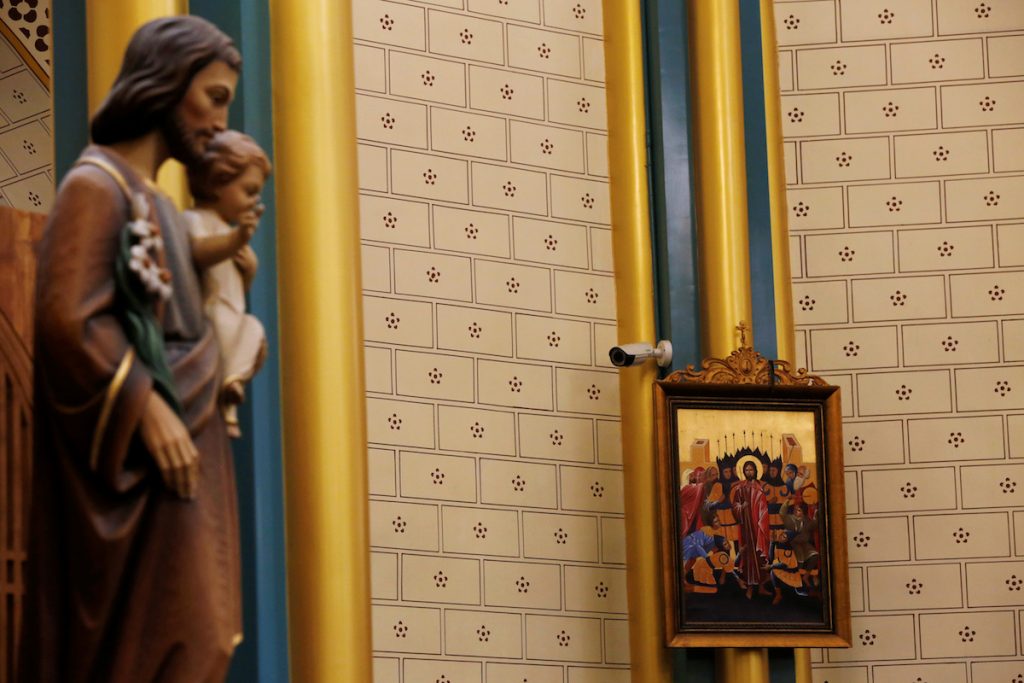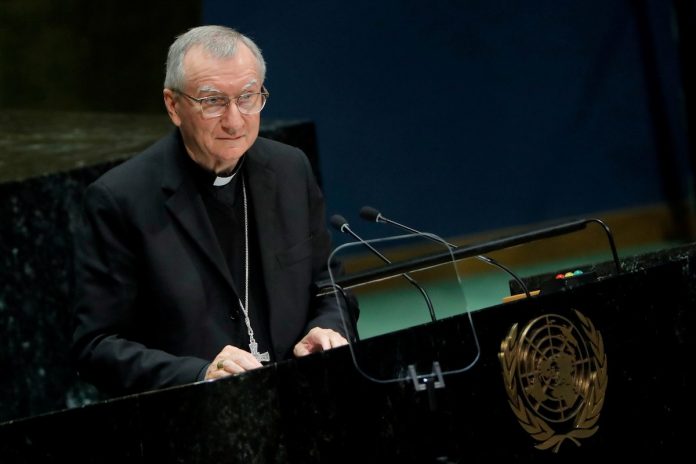An influential official of the Catholic Church said the Vatican is taking the right steps toward “reconciliation within the Church,” including with the Church in China.
Cardinal Pietro Parolin, Vatican secretary of state, said in a radio interview this week that the Church in China “is a fundamental part of the Catholic Church.”
He said “everything … has been tried and is being tried is to secure this community, which is still small, but which has great strength and vitality.”
The steps taken so far “are in the right direction toward a reconciliation within the Church … even if they have not resolved all the problems that still exist and will probably take a long time to address,” he said.
The cardinal told Spain’s COPE radio network on April 5 that the Vatican is doing everything “to assure a normal life for the Church in China,” which he said is suffering from persecution.
He said the people’s “persistence” in their faith should give the Church hope for the future, including communion with the pope.
In October last year, the Vatican renewed a controversial “provisional agreement” with China, specifically on the appointment of Catholic bishops.- Newsletter -Subscribe to Spotlight, our daily newsletter.
In a statement, the Vatican said the initial application of the deal “has been positive” so it extended it until Oct. 22, 2022.
The agreement calls for China to formally recognize the pope’s authority within the Church, while the Vatican in turn will recognize the legitimacy of bishops previously appointed by Beijing.
Catholics in China are emerging from more than half a century of division that saw them split between a state-backed “official” Church and a “non-official” underground Church that remained loyal to Rome.
The “provisional agreement,” which was signed in Beijing on Sept. 22, 2018, and went into effect a month later, expired last year until it was renewed
The Holy See has repeatedly announced that it “intends to pursue an open and constructive dialogue for the benefit of the life of the Catholic Church and the good of Chinese people.”
The deal has been highly contested by the US State Department and some Catholics, who say the Vatican has sold out to the communist government.
Many believe the accord will eventually lead to diplomatic relations with Beijing, meaning that the Vatican would have to sever ties with Taiwan.
Cardinal Parolin, however, said in previous interviews that the Vatican is “not talking about diplomatic relations” but only about “efforts to normalize the life of the Church.”
In a statement, the Holy See said the “primary objective” of the agreement “is that of sustaining and promoting the proclamation of the Gospel” and “restoring the full and visible unity of the Church.”

In a previous statement, Cardinal Parolin admitted that “various misunderstandings” had arisen regarding the provisional agreement.
He said most of these issues arose because “unrelated events regarding the life of the Catholic Church in China were attributed to the agreement.”
“It was even connected to political issues that have nothing to do with the actual agreement,” said the cardinal
Cardinal Parolin said he is aware of the existence of various problems regarding the life of the Catholic Church in China, but also that it is impossible to confront all the issues together.
The Vatican noted that some sectors of international politics “have sought to analyze the Holy See’s work primarily along geopolitical lines.”
In the April 5 interview, Cardinal Parolin said the Vatican continues to guarantee “space for religious freedom, and communion because one cannot live in the Catholic Church without communion with the successor of Peter, with the pope.”
He admitted that divisions in the Catholic Church are real and it “does a lot of damage to the Church.”
“Anyone who sees the situation of the Church today has to worry about these things because they are there,” he said.
“There is cause for concern,” said the cardinal, adding that the conflict “probably stems from the fact that the pope puts a lot of emphasis on reforming the Church, and there is a lot of confusion about that.”
He noted that sometimes these divisions and resistance arise from confusion, from the inability to distinguish “between what is essential and cannot change and what is not essential and must be reformed, must change according to the spirit of the Gospel.”









